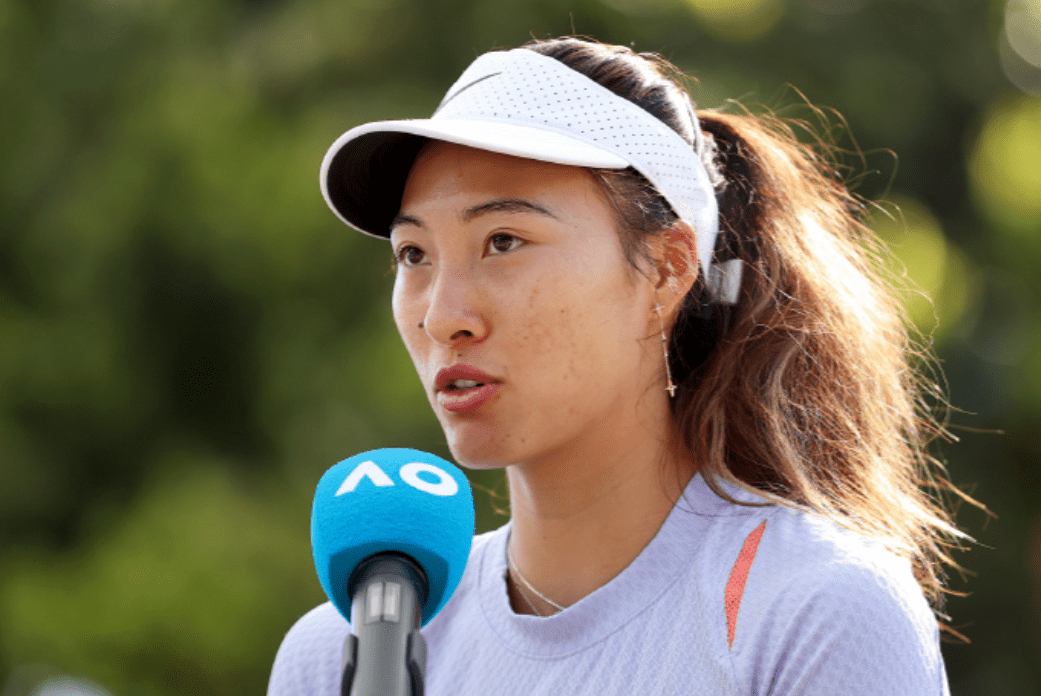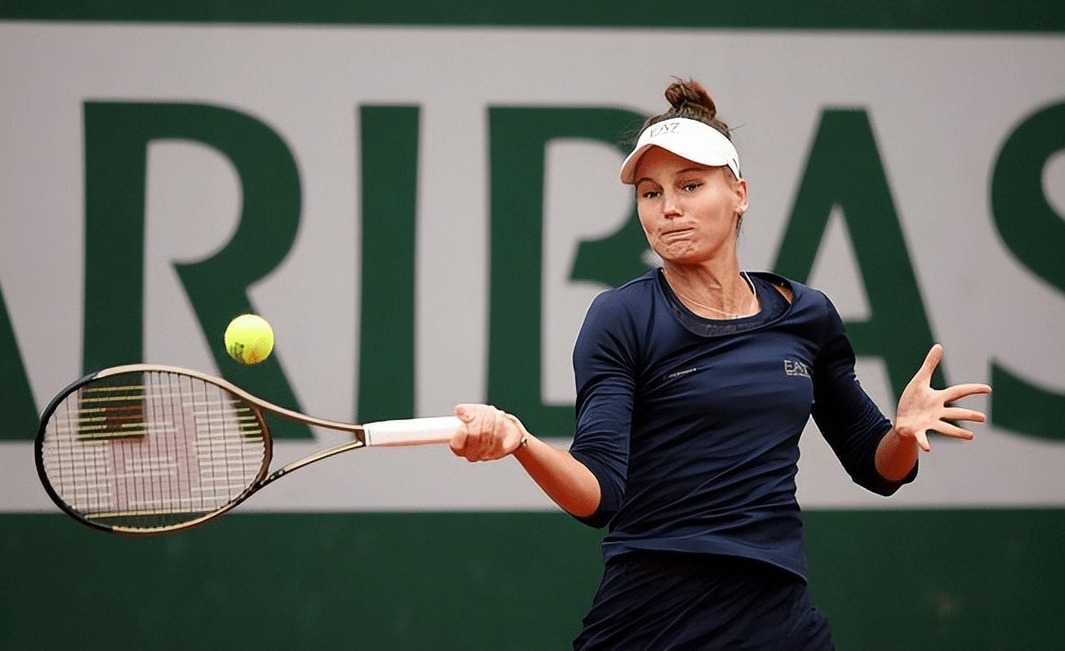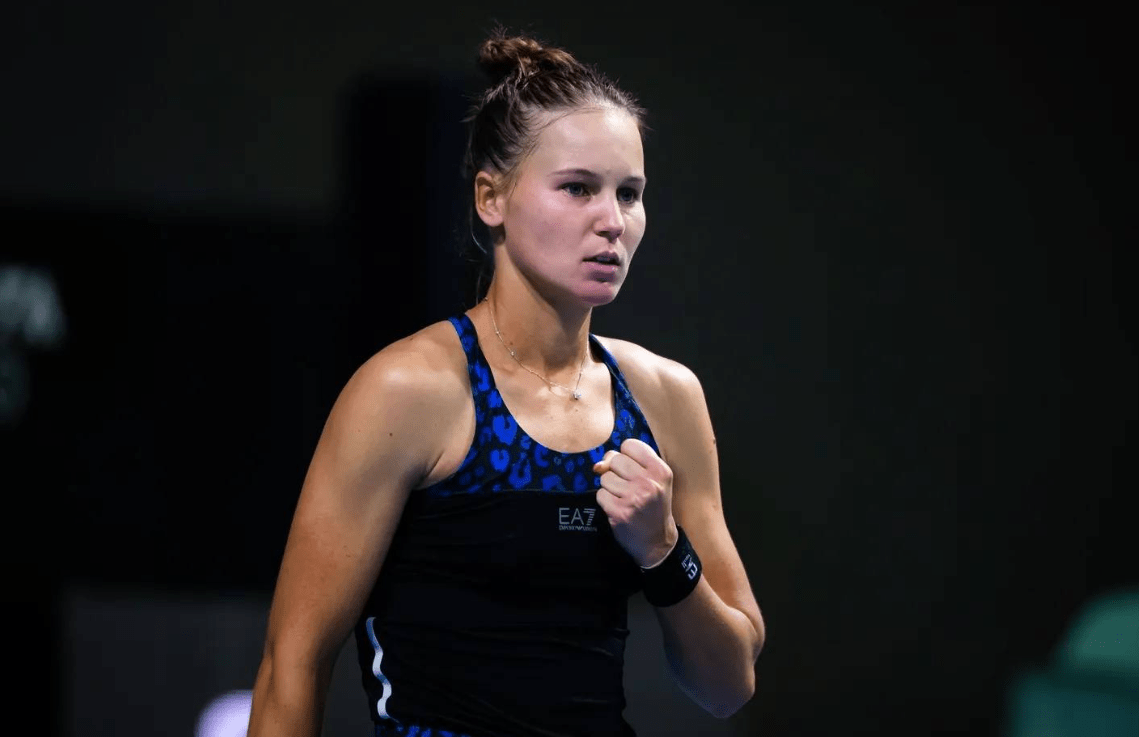Why can Sabalenka make a comeback in adversity and become the "Iron Lady" of hard court events? And why does Zheng Qinwen, who also possesses extremely high talent, repeatedly hit a wall against top players? Is it a gap in strength, or is it a problem with mentality and experience? The reversal battle in the Brisbane Station final not only allowed us to see Sabalenka's dominance but also made Chinese tennis fans re-examine Zheng Qinwen's new season trend.
The Brisbane Station final seemed like an ordinary WTA500 event, but the atmosphere on the court was clearly a hard-hitting peak confrontation. At the end of the first set, Sabalenka trailed Kudryavtseva, and even the spectators in the stands thought the match was going to be over. Kudryavtseva started with a hot hand, constantly suppressing her opponents with precise baseline attacks and flexible net changes, which once made Sabalenka lose her rhythm. The first set ended 6-3, with Kudryavtseva taking the lead. By this point in the game, the suspense seemed to be slowly disappearing.

But the greatest charm of the game is "until the last moment, no one can say they've won." In the second set, Sabalenka suddenly exploded, with powerful serves that completely disrupted her opponent's rhythm, and her forehand shots began to produce ultra-high quality. Although Kudryavtseva tried to adjust, she obviously lacked the confidence and experience that Sabalenka had in "handling big scenes."
In the last two sets, the score was completely one-sided, 6-3, 6-2, and Sabalenka directly completed the reversal, winning her first championship of the 2024 season. This kind of "fighting back from the brink" scenario is undoubtedly the biggest difference between top players and ordinary players.

As an observer, I can't help but marvel at the calmness and explosive power in such critical moments, which is something not everyone can achieve.
Kudryavtseva, who lost in the finals, is also worth mentioning. Although she was the "loser," she had proven her strength by fighting her way from the qualifying rounds to the finals, defeating multiple seeded players. Especially as a player ranked only 107th in the world, she dared to go head-to-head on the court, not intimidated by the aura of the world number two, which is very commendable in itself.

The key point of this match is that her tactics in the first set were very successful, but she was disrupted by Sabalenka's violent tennis in the second set. Kudryavtseva's problem is obvious: when her tactics are broken, she lacks Plan B to respond. It's like running a marathon, where you sprint full force in the first half, but your physical strength is insufficient in the second half, and you get overtaken. This also suggests from the side that Kudryavtseva still needs to improve her experience and mental quality in top-level competitions.
However, such a "dark horse" performance also allows people to see her potential. If she can maintain this momentum in the next few games, she may soon become a dark horse in the new season's WTA tour.

Leaving aside this final, Sabalenka's position in women's tennis today is not just based on those few games. Her dominance on hard courts is already a well-known fact. Among her 18 career titles, 16 were won on hard courts. Such data is enough to show that hard courts are her home court.
Where does her advantage lie? To put it bluntly, strong serving, stable baseline, and tough mentality. Her serve often exceeds 180 kilometers per hour, directly forcing her opponents into a corner and making them gasp for breath.

And her ability to hold the baseline also gives her the upper hand in multi-shot confrontations. Most importantly, it is her ability to adjust. Many players may collapse after losing the first set, but Sabalenka always manages to counterattack in adversity. This combination of "hard power + big heart" is indeed hard to argue with.
However, everything has two sides. Her "violent style of play" consumes a lot of physical energy and is prone to errors. If she encounters a player like Swiatek, who is extremely strong in defensive counterattacks, her matches will often be played abnormally difficultly. This is also why, despite Sabalenka's dominance, her dominance outside of hard courts has not yet reached its true peak.

Let's talk about Zheng Qinwen. In recent years, Zheng Qinwen's name has frequently appeared on the WTA stage, but unfortunately, she has never broken through the "ceiling" with top players. In her record against Sabalenka, Zheng Qinwen has already suffered five consecutive defeats. This is not just a gap in strength but more a lack of mentality and experience.
Zheng Qinwen did not participate in this Brisbane Station match but chose to focus on preparing for the Australian Open. However, judging from past matches, her problems are obvious: she is not decisive enough in handling key points, and her psychological fluctuations are significant when facing top players. There have been several times when she clearly had the advantage but missed opportunities due to hesitation. As the saying goes, "Opportunities are only left for those who are prepared," if she cannot continue to improve in terms of psychology and detail handling, the road for Zheng Qinwen to catch up with Sabalenka may be long.

However, Zheng Qinwen is not without hope. Her physical conditions are excellent, with height, strength, and physical fitness that give her the potential to become a top player. Moreover, she has also had classic comebacks, such as in the early stages of the 2023 French Open, where she could achieve a turnaround after losing the first set, showing her strong fighting spirit. The question is how to consistently perform these abilities in top-level events. This requires more match experience and high-level competition to polish.
With the conclusion of the Brisbane Station, the focus of the new season begins to shift to the Australian Open. As the defending champion, Sabalenka is undoubtedly one of the biggest favorites. This championship win has also greatly boosted her confidence. After all, she is not only the "dominator" of hard courts but also an expert in psychological warfare.

But this does not mean that she will have a smooth ride. At the Australian Open, top players like Swiatek and Garcia are all eyeing her, and newcomers like Zheng Qinwen may also bring surprises. The excitement of a season is not just about watching the big names perform but also about whether these "challengers" can break the existing pattern.
Sabalenka's comeback championship once again proves that the success of top players relies not only on strength but also on psychological resilience in critical moments. For Zheng Qinwen, her path may still be long, but "Rome wasn't built in a day," as long as she takes solid steps forward, there will surely be a time when she welcomes her own glorious moment.
(Disclaimer) The processes and pictures described in the article all come from the Internet. This article aims to promote positive social energy and has no vulgar or inappropriate guidance. If there are any copyright or personal infringement issues, please contact us in time, and we will delete the content immediately! If there are any questionable parts of the event, we will delete or make changes immediately after contacting us.